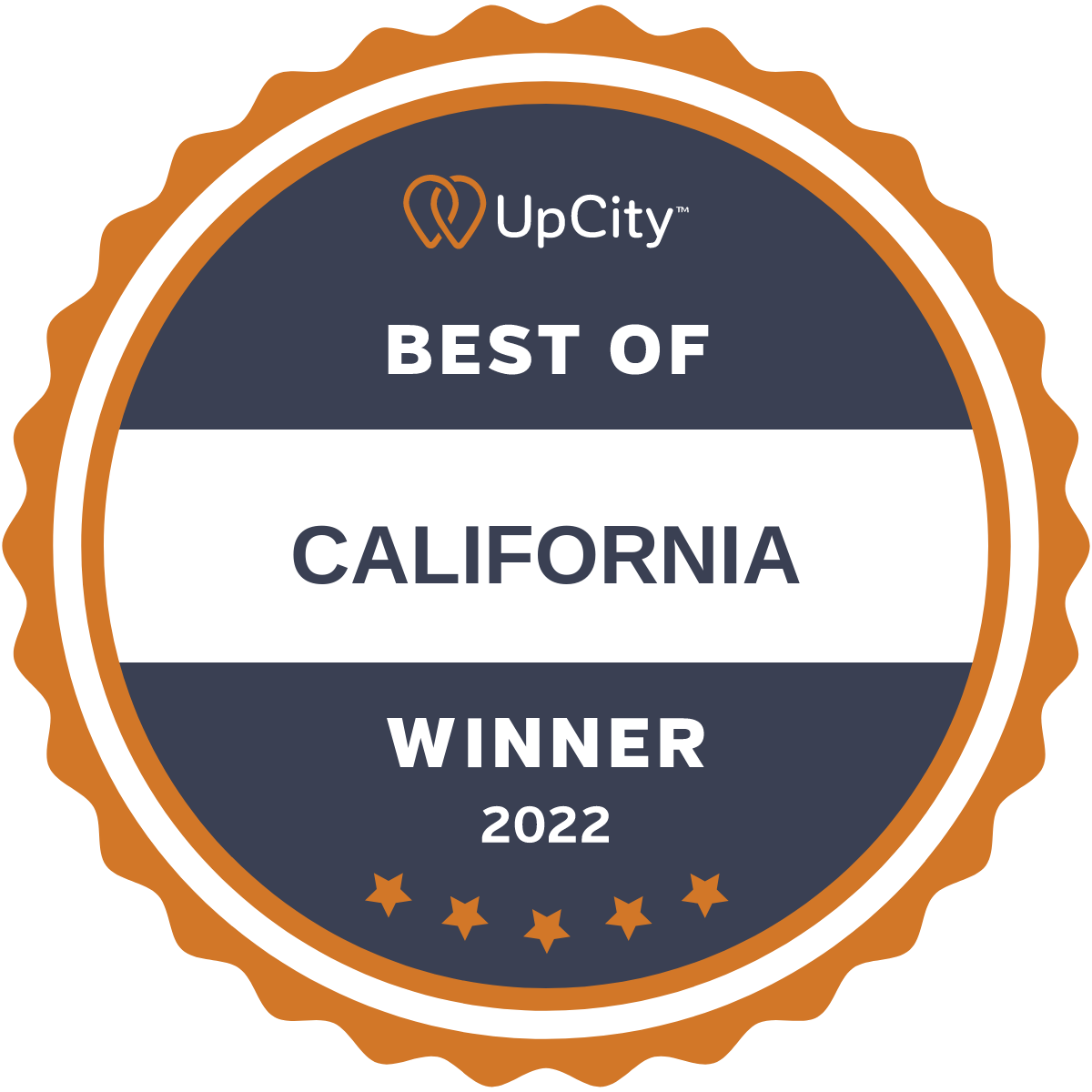Healthcare Link Building Services for Medical Professionals and Practices
As the leading Healthcare Marketing Agency nationwide, we prescribe the perfect remedy for your medical practice’s online success! Establishing a robust online presence in the digital age is essential for healthcare professionals and practices. With our tailored link-building strategies, we’ll elevate your authority in the healthcare industry, attract more patients, and boost your practice to the top of search engine rankings. Get ready to unlock the full potential of your medical practice marketing efforts with our results-driven link-building services!
Continue reading to learn more about how we make Google ranking magic happen with healthcare services link-building.
When you partner with Search Business Group, we’ll help you identify your strengths, and your target audience to earn more patients for your practice.
Establishing Your Online Authority in the Healthcare Industry
In the ever-evolving world of healthcare, it’s not just medical expertise that sets you apart but also your digital footprint. Establishing your online authority is the key to gaining trust, attracting patients, and staying ahead in the competitive healthcare and medical industry. As medical professionals and practices, you have a wealth of knowledge and experience to share, and our Healthcare Link Building Services are designed to amplify your voice on the web.
Picture this: A potential patient searches for medical advice or treatment options online. They will likely trust and seek care from a healthcare provider with a robust online presence backed by reputable sources and endorsements. This is where link building with quality links comes into play – a strategic approach to earning valuable backlinks from trusted healthcare websites, influencers, and organizations.
Our link-building strategies are not just about securing backlinks; we focus on quality, relevance, and ethical practices. By building relationships with authoritative healthcare platforms, we ensure that your medical practice is endorsed by the best in the industry. Backlinks from these credible sources act as a virtual stamp of approval, elevating your online reputation and credibility.
With our Healthcare Link Building Services, you’ll rise above the digital noise, positioning yourself as a thought leader and earning the recognition you deserve. We understand that the healthcare industry requires a delicate touch regarding online marketing. Our Healthcare SEO and Healthcare content experts specialize in link-building, ensuring that every strategy aligns perfectly with your medical expertise and target audience.
As you focus on providing exceptional patient care, let us handle the digital front – attracting more patients, improving search engine rankings, and driving organic traffic to your website. Whether you’re a seasoned practitioner or a budding healthcare professional, our link-building prescription is tailor-made to catapult your practice toward online success.
We are your perfect partner to help you write a success story that will inspire and heal – one link at a time.
Mastering Healthcare Link Building
Our Expert Approach: The Complexities of Healthcare Link Building
At SBG, we pride ourselves on being healthcare link-building specialists. Our SEO and content experts have honed their skills to master the intricacies of the medical industry, making us the ideal partner to elevate your online authority. In the fast-paced world of healthcare, we understand that crafting a successful link-building strategy requires finesse and expertise.
Understanding the Healthcare Landscape
The healthcare industry is unique and demands a tailored approach to link-building. We recognize the challenges medical professionals and practices face when establishing their online authority. From compliance with medical regulations to navigating sensitive patient information, the complexities of healthcare link-building demand a seasoned team with in-depth knowledge.
Targeting the Right Audience
In healthcare, the target audience isn’t limited to patients alone. Your healthcare content must appeal to medical professionals seeking cutting-edge research and patients searching for trustworthy healthcare advice. Our expert approach involves identifying the diverse segments of your audience and crafting content that resonates with each, resulting in authoritative backlinks from relevant healthcare sources.
Securing Relevant and Authoritative Backlinks
Securing backlinks from reputable sources that align with your medical expertise is crucial in the vast ocean of healthcare websites. Our team employs advanced tools and meticulous research to identify authoritative healthcare platforms, industry influencers, and medical associations. By building relationships with these sources, we ensure that your medical practice is endorsed by the best in the industry.
Crafting Content with Medical Authority
Link building isn’t just about acquiring backlinks but also about creating content showcasing your medical authority. Our team of medical writers and content creators is skilled at translating complex medical concepts into engaging and informative content. Whether it’s publishing thought-provoking articles on groundbreaking medical advancements or sharing in-depth case studies, we know how to curate content that resonates with medical professionals and patients.
Navigating Compliance and Ethical Practices
As healthcare link-building experts, we prioritize compliance with medical regulations and ethical practices. We are well-versed in safeguarding sensitive patient information, maintaining patient privacy, and adhering to industry guidelines. Trust and integrity are the cornerstones of our link-building approach, ensuring that your medical practice’s reputation remains untarnished.
Realizing Your Practice’s Vision
Your healthcare practice is unique, and so is our approach to link-building for you. We collaborate closely with your team to understand your practice’s goals, specialties, and vision. Whether you’re a specialized medical clinic aiming to reach a niche audience or a large medical institution seeking to establish thought leadership, we craft link-building strategies that precisely align with your aspirations.
In the dynamic world of healthcare link-building, you need an expert partner that speaks the language of the medical industry. At SBG, we possess the domain expertise, passion, and dedication to elevate your online authority. Partner with us and begin a before-and-after transformation into successful link-building that will position you as the go-to authority in the healthcare industry. With our expert approach, your medical practice will skyrocket, attracting more patients, forging reputable partnerships, and significantly impacting the healthcare community.
Benefits of Healthcare Link Building
Power Boost Your Medical Practice with High-Quality Backlinks
Quality backlinks from reputable healthcare websites can significantly improve your search engine rankings and online visibility. As a result, when potential patients search for medical services in your area, your practice will be more likely to appear on the first page of search results. Studies have shown that websites on the first page of Google receive over 90% of the clicks, making this an invaluable benefit for your medical practice.
Increased Referral Traffic and Patient Acquisition
As we build links to your website from relevant healthcare sources, you’ll experience increased referral traffic. Patients seeking medical information or services on these authoritative websites will be directed to your practice, resulting in a higher likelihood of patient acquisition. This targeted traffic increases your patient base and leads to higher conversion rates.
Enhanced Online Reputation and Trust
Backlinks from trusted medical resources enhance your online reputation and establish your practice as a credible authority in the healthcare field. Patients are likelier to trust and choose a medical professional with a solid online presence and positive endorsements from reputable sources.
Types of Links in Healthcare Link Building
Building the Foundations: Understanding Link Types
understanding the building blocks that lay the foundation for your online success. In the world of link building, not all links are created equal. It’s essential to comprehend the various links and their significance in elevating your healthcare practice’s authority.
As medical professionals and practices, you deserve a link-building strategy as specialized as your expertise. Join us as we delve into the realm of link types and unveil the key to unlocking the full potential of your online presence. Let’s uncover the intricacies of natural backlinks, manual outreach, editorial endorsements, and more – building a robust link profile that sets you apart in the competitive healthcare landscape. Let’s embark on this enlightening journey of understanding link types and empowering your medical practice for online success.
Natural Backlinks
These links are the most valuable and powerful in link building. Natural backlinks are given willingly by other websites without solicitation because they find your content helpful and relevant. They genuinely endorse your medical expertise and contribute significantly to your website’s authority.
Manual (or Outreach) Backlinks
Manual backlinks are acquired through proactive outreach to other healthcare websites, bloggers, or influencers. Through personalized and value-driven communication, we build relationships that result in relevant and valuable backlinks to your medical practice.
Editorial Backlinks
Editorial backlinks are earned when other websites mention or cite your content as a credible source. These links are based on the merit and quality of your healthcare content, making them highly valuable for SEO.
Self-Created Backlinks
Self-created backlinks are links you create, such as forum signatures or blog comments. While they might be easier to obtain, they are generally less valuable and may even be considered spammy by search engines. We prioritize ethical link-building practices and avoid self-created links to maintain your online reputation.
Tailored Strategies for Healthcare Link Building
Your Prescription for Effective Link Building in the Healthcare Industry
As medical professionals, your expertise deserves to shine on the digital stage. Let us empower your practice with a thoughtfully crafted link-building approach that secures valuable backlinks from reputable healthcare sources.
Say goodbye to the complexities of link building, and embrace your prescription for effective healthcare link building. Together, we’ll script a success story that places your medical practice at the forefront of the healthcare industry. Get ready to unlock your online potential and positively impact countless patients’ lives.
Content Creation and Promotion: Delivering Medical Expertise
We develop high-quality, informative content that showcases your medical expertise and addresses patients’ concerns. This can include blog posts on medical breakthroughs, patient testimonials, and in-depth articles on specific medical conditions. By promoting this content to reputable healthcare websites, we attract relevant backlinks that drive traffic to your site.
Thought Leadership and Guest Blogging: Becoming a Medical Authority
Our agency identifies authoritative medical blogs and platforms where we can contribute guest posts. Through well-researched articles on emerging medical trends or innovations, your medical practice gains exposure to a broader audience and earns backlinks from prominent healthcare sources.
Resource Outreach and Collaboration: Partnering with Healthcare Influencers
We identify and collaborate with influential healthcare professionals, medical organizations, and institutions. Through content collaborations, interviews, or co-authored publications, we secure backlinks and endorsements from respected healthcare entities, further elevating your online authority.
Google Guidelines and Ethical Practices
Google Guidelines and Ethical Practices for Healthcare Link Building
Adhering to ethical practices and staying within the bounds of search engine guidelines is paramount for long-term success. As specialists in healthcare link building, we prioritize transparency, integrity, and compliance with Google’s guidelines to safeguard your medical practice’s online reputation.
Quality over Quantity: Prioritizing Relevance and Authority
Google’s algorithm emphasizes quality over quantity when it comes to link building. Rather than pursuing excessive links, we focus on obtaining relevant backlinks from reputable healthcare sources. These high-quality backlinks carry more weight in search engine rankings, elevating your practice’s authority and credibility.
Natural Link Acquisition: Earn Trust Organically
Our approach revolves around natural link acquisition – links that are willingly given by other websites because they find your content valuable and informative. We do not engage in manipulative practices, link schemes, or spammy tactics that could lead to penalties from search engines. Instead, we foster genuine relationships with healthcare influencers and organizations, resulting in organic endorsements and backlinks.
Diversified Link Profile: A Balanced Link Portfolio
Google values diversity in your link profile. As part of our ethical approach, we curate a balanced link portfolio that includes a mix of natural backlinks, editorial endorsements, guest posts, and resource collaborations. This diverse profile strengthens your online authority and reduces the risk of being adversely affected by algorithm updates.
Transparency and Reporting: Keeping You Informed
We believe in transparent communication, and our reporting system keeps you informed every step of the way. Our comprehensive reports provide insights into the progress of your link-building campaign, the acquisition of new backlinks, and improvements in search engine rankings.
Healthcare Digital Marketing Agency
Why a Specialized Healthcare Digital Marketing Agency is Vital for Link Building
Choosing a dedicated healthcare digital marketing agency over a regular one cannot be overstated. Link building is a powerful strategy to improve online visibility and organic traffic. However, entrusting your healthcare link-building to an agency that doesn’t specialize in healthcare can lead to various potential dangers:
Irrelevant and Spammy Backlinks
A non-specialized agency might focus on acquiring backlinks from unrelated or low-quality websites. These spammy backlinks fail to improve your online authority and can also lead to penalties from search engines.
Violation of Healthcare Regulations
Link building for healthcare requires adherence to strict regulations to protect patient privacy and comply with healthcare laws. A general digital marketing agency might need to fully understand these complexities, resulting in accidental violations and potential legal consequences.
Inaccurate Medical Content
Healthcare is a highly specialized field with specific medical terminologies and nuances. A non-specialized agency might produce inaccurate or misleading medical content, damaging your credibility and trust with patients and peers.
Missed Opportunities for Niche Targeting
A general agency may need to grasp the nuances of targeting specific medical niches. As a result, your link-building efforts may fail to reach the most relevant audience, leading to wasted resources and missed growth opportunities.
Lack of Industry Insights
Healthcare link-building requires industry insights and knowledge of medical trends. A non-specialized agency may need to catch up with the latest developments in the healthcare field, limiting the effectiveness of your link-building strategies.
Negative Impact on Reputation
Poorly executed link-building efforts can negatively impact your online reputation. Google penalties, low-quality content, and irrelevant backlinks can erode trust among patients and colleagues, leading to a tarnished brand image.
Ineffective Link-Building Strategies
Without expertise in healthcare link-building, the agency may resort to outdated or ineffective tactics that yield minimal results. This wasted time and effort can hinder your practice’s growth and competitive edge.
Missed Opportunities for Thought Leadership
Healthcare professionals benefit significantly from thought leadership and content collaboration with industry influencers. A non-specialized agency may overlook these opportunities, depriving you of valuable partnerships and backlinks from influential sources.
Data Security Risks
Link building often involves sharing sensitive data and collaborating with other websites. A non-specialized agency may not prioritize data security adequately, putting your practice and patients at risk of data breaches.
Lack of Healthcare SEO Expertise
Healthcare SEO requires a deep understanding of medical keywords, search trends, and user intent. A non-specialized agency may need healthcare SEO expertise to optimize your website for targeted search traffic.
Safeguard Your Reputation with Specialized Healthcare Link-Building!
Your Healthcare Marketing Success is One Link Away
Don’t let your healthcare practice miss the chance for exponential growth and online authority. Trust us at Search Business Group, your dedicated healthcare link-building experts. We know that one link can make all the difference, propelling you to the forefront of the healthcare industry.
Risking your reputation and growth with a non-specialized agency is like leaping into the unknown. But fret not – we’re just one link away from transforming your online presence. Embrace the power of specialized healthcare link-building and unlock a world of opportunities for your practice.
Link-Building FAQs:
Unraveling the Secrets to Healthcare Website Success
What is link-building?
Link-building is a crucial SEO strategy involving acquiring backlinks from reputable websites to your own site. These backlinks act as “votes of confidence” for search engines, indicating that your content is valuable and authoritative. When other trustworthy sites link to your healthcare website, it enhances your online reputation and boosts search engine rankings.
Why is link-building important for healthcare websites?
For healthcare websites, link-building is vital as it establishes your online authority and credibility in the medical industry. Quality backlinks from reputable healthcare sources help attract a targeted audience of patients and medical professionals. Improved search engine rankings also lead to increased organic traffic and patient inquiries, ultimately contributing to the growth of your healthcare practice.
What are the benefits of link-building?
The benefits of link-building for healthcare websites are numerous. Quality backlinks can enhance search engine rankings, signaling search engines to trust your website and subsequently boosting its visibility in search results. Additionally, these valuable backlinks drive targeted traffic to your healthcare site, which can increase the likelihood of patient acquisition. Beyond these direct advantages, establishing authority in the field becomes easier when you have authoritative links from reputable healthcare sources, solidifying your online reputation as a credible medical expert. Furthermore, by engaging in practices such as guest blogging and content collaborations, you position yourself as a thought leader in the healthcare industry.
What are the best practices for link-building?
For effective link-building, it’s essential to adhere to several best practices. Firstly, focus on relevance by acquiring backlinks from healthcare-related sites and topics that resonate with your medical practice. It’s crucial to prioritize the quality of your backlinks over the sheer quantity, seeking out links from reputable and authoritative sources. In tandem with this, invest time in creating valuable content that’s not only of high quality but also informative, making it link-worthy for others. Ethics should never be compromised in the link-building process. Stay clear of manipulative practices, link schemes, or any spammy tactics to ensure your efforts yield long-term success. Lastly, building and fostering relationships is key. Connect with healthcare influencers and organizations to earn genuine endorsements and backlinks.
How can I get started with link-building?
To kick off link-building for your healthcare website, start by identifying relevant healthcare websites. Conduct research to find reputable platforms that closely align with your specific medical niche. Once you’ve pinpointed these sites, focus on producing high-quality content. Your material should be engaging and informative, designed so that others will naturally want to link to it. With this quality content in hand, proceed to outreach efforts. Reach out to healthcare influencers and websites, proposing opportunities for guest blogging or collaborative content creation. This approach expands your reach and solidifies your position within the healthcare community.
How can I measure the success of my link-building efforts?
To gauge the success of your link-building efforts, consider employing several key metrics. First and foremost, monitor the increase in organic traffic from search engines. This will help you assess the direct impact of backlinks on the number of site visits you receive. Concurrently, keep an eye on search engine rankings for specific medical keywords, indicating whether your site’s visibility and authority are improving. Additionally, it’s crucial to analyze the traffic originating from referral sources. By doing this, you can better understand the effectiveness of your link-building campaigns and adjust strategies accordingly.
What are some common mistakes to avoid when link-building?
When starting on link-building for your website, it’s crucial to sidestep several common mistakes. Firstly, acquiring backlinks from unrelated or low-quality websites can detrimentally affect your online reputation. It’s not just about the number of links; their relevance and quality are paramount. Moreover, avoid black hat tactics such as purchasing links or indulging in link farming. These manipulative approaches can lead to severe penalties from search engines, negatively impacting your site’s visibility. Lastly, avoid the trap of over-optimization. Excessively optimizing your anchor text or overly linking within your site can be perceived as spammy, leading search engines to penalize or devalue your content potentially. Always prioritize genuine, organic link-building methods to ensure sustained success.
How can I stay up-to-date on the latest link-building trends?
To remain abreast of the latest in link-building trends, there are several strategies you should employ. Begin by subscribing to healthcare marketing blogs and closely following SEO experts. Their insights can provide valuable guidance on the latest best practices and emerging strategies. Additionally, consider participating in digital marketing webinars and conferences. These events often feature industry leaders and provide a platform for exchanging innovative ideas and the latest trends. Above all, commit to continuous learning. Dedicate time regularly to research and study the ever-evolving landscape of link-building and SEO, particularly regarding healthcare. You’ll ensure your strategies remain effective and ahead of the curve by staying informed.

















